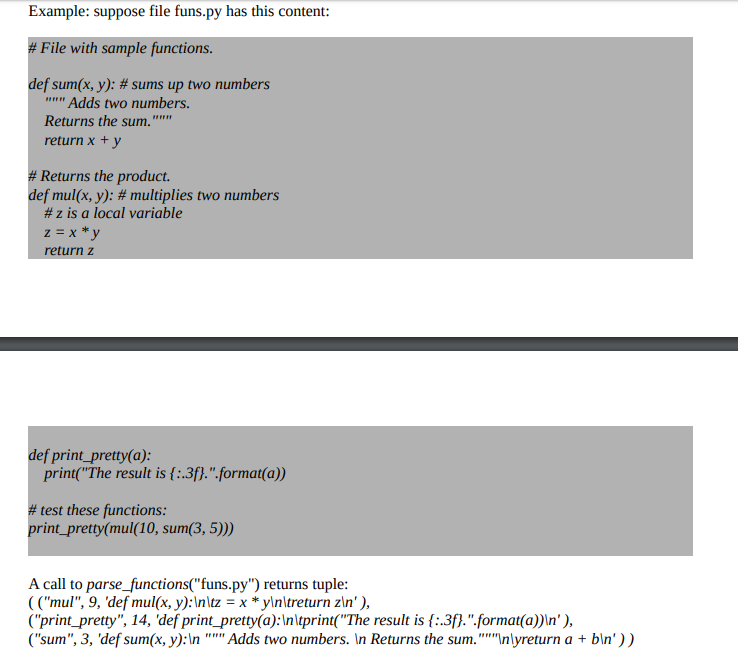Question: Python programming parsing function. b) Write a function called parse_functions that takes as parameter a string representing the name of a .py file. The function
Python programming parsing function.


b) Write a function called parse_functions that takes as parameter a string representing the name of a .py file. The function reads and parses the Python file and returns a tuple of tuples where each tuple has its element 0 a function name, element 1 the line number, and element 2 the function code as a string (signature and body), with all comments removed. The top-level tuple returned must be ordered alphabetically by the function name. Function parse_functions must have a proper docstring and annotations. Use try/except and in case of an error print a user-friendly message to the terminal and re-raise the exception. Example: suppose file funs.py has this content: # File with sample functions. def sum(x, y): # sums up two numbers """ Adds two numbers. Returns the sum." return x + y # Returns the product. def mul(x, y): # multiplies two numbers # z is a local variable z=x*y return z def print_pretty(a): print("The result is {:.3f}.".format(a) # test these functions: print_pretty(mul(10, sum(3,5)) A call to parse_functions("funs.py") returns tuple: (("mul", 9, 'def mul(x, y): \tz = x *y \treturn z '), ("print_pretty", 14, 'def print_pretty(a): \tprint("The result is (:.3f}.".format(a)) '), ("sum", 3, 'def sum(x, y): ""'"Adds two numbers. In Returns the sum."'"' \yreturn a + b '))
Step by Step Solution
There are 3 Steps involved in it

Get step-by-step solutions from verified subject matter experts


